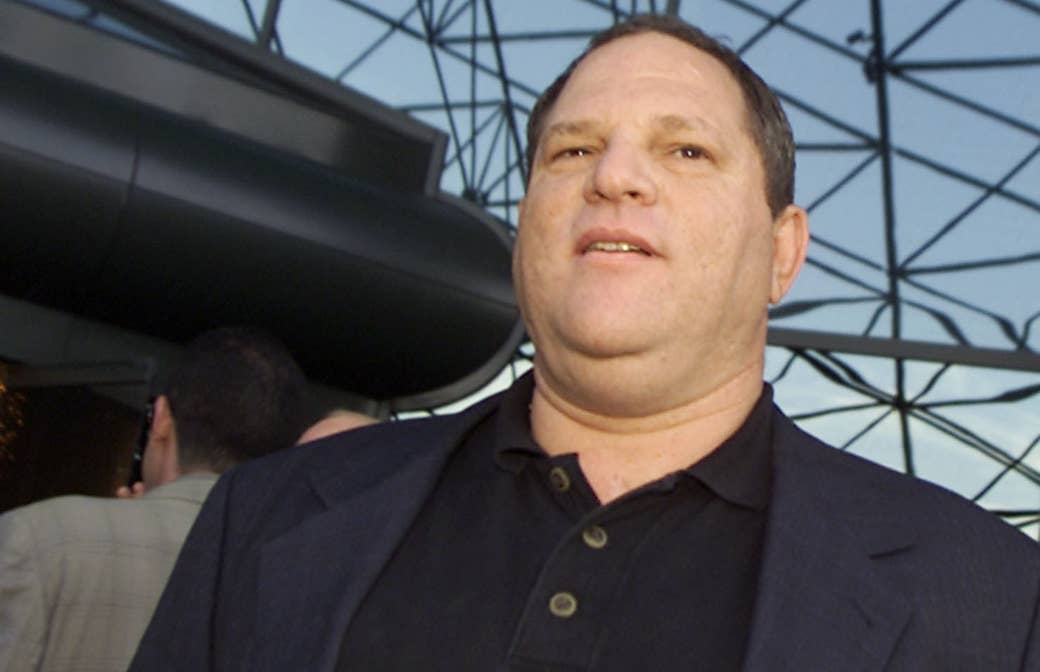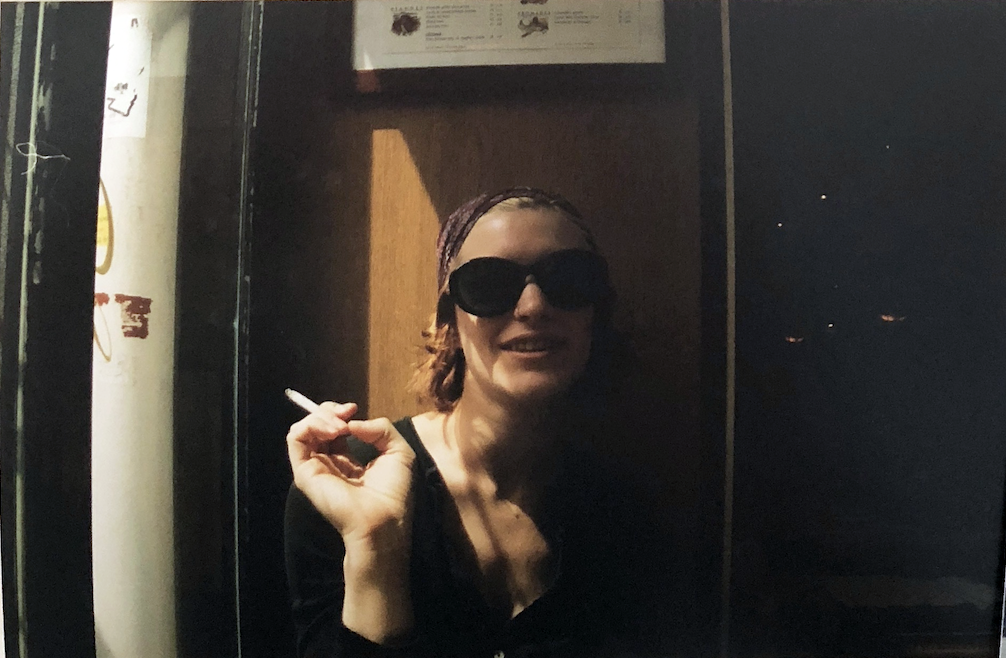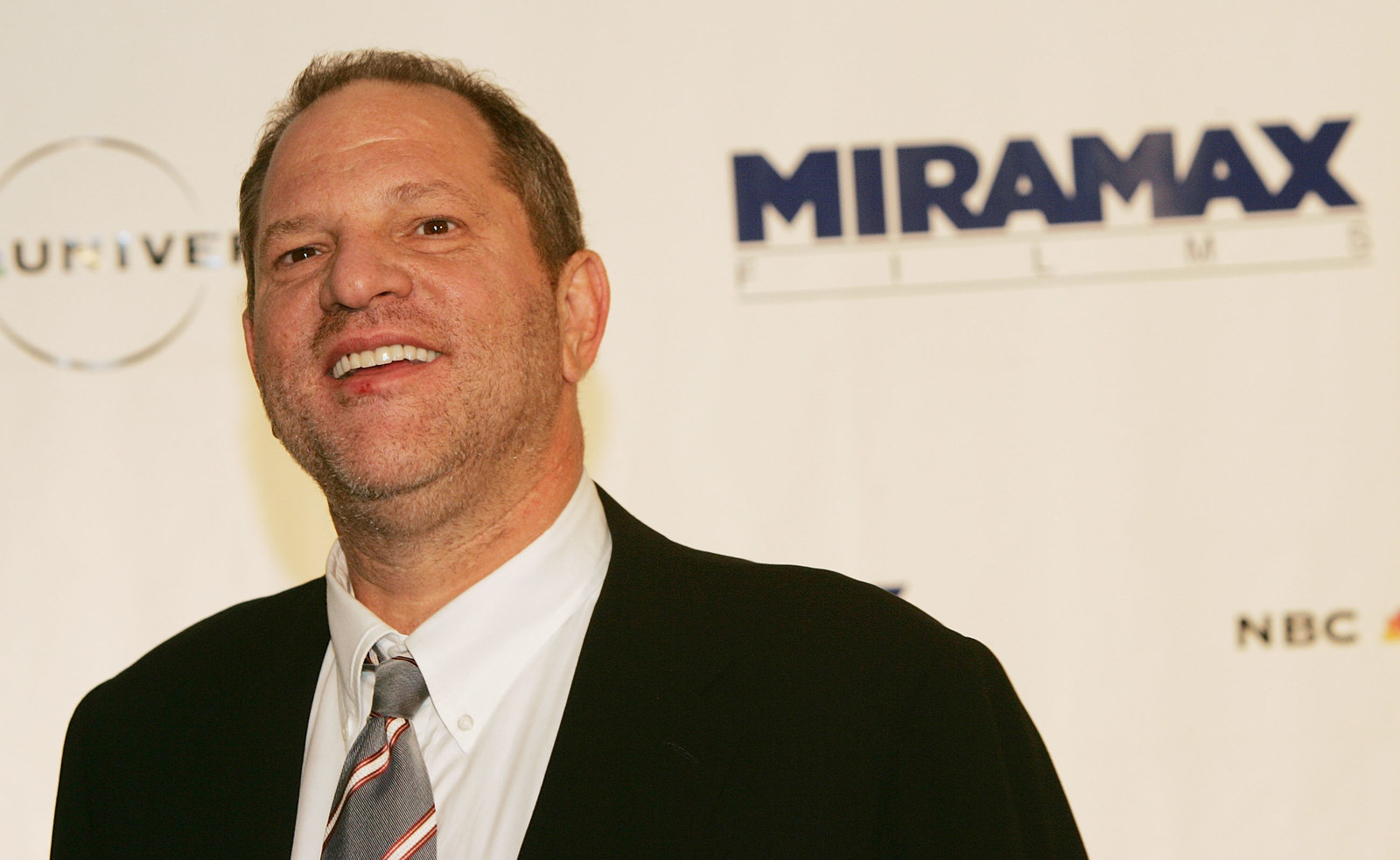
It would take Harvey Weinstein 15 seconds to exit his chauffeured car and walk into the lobby of the Miramax offices in Tribeca, or to walk out. And as an intern in the early 2000s, those 15 seconds were frequently my only direct interaction with the man who for years had been my idol.
At the time, I was a film student, so smoking was basically mandatory — and in 2001 in New York, it was great for networking. I ended up spending so much time in front of the Miramax building at 375 Greenwich St. that Weinstein's chauffeur and I were on a first-name basis. Almost every time Weinstein walked past me, he'd comment on my body or clothing. A couple of times, he asked if I needed a ride home. (I did not.) Sometimes I'd be sitting with a colleague, but whatever comments Harvey threw our way never even so much as slowed down our conversation. And with each interaction, my ego would inflate. I'd mark one down in the win column because Harvey Weinstein himself had spoken to me.
Harvey Weinstein became my favorite street harasser.
Walking from the East Village to Tribeca for work, I’d hear the same kinds of things hollered from construction sites, whispered as I cut through a park, or yelled from the window of a cab. I’d eviscerate every street harasser who had the misfortune of looking in my direction. But I accepted it from Weinstein. Because I was 20. Because I was an NYU film student. Because my mom was proud of me. Because Miramax. Because it was the only place I wanted to be at that time. In a weird way, Harvey Weinstein became my favorite street harasser.
The overall culture at Miramax was not to abuse women, specifically, though public humiliations, physical assaults, and crying executives were common. But it's the normalization of that kind of behavior in Hollywood that enables sexual abuse and harassment beyond what I can now comprehend I ever accepted. I was an aspiring writer, rather than an actor, but my early experience with casting-couch culture, thanks to what Weinstein exhibited, informed the way I expected men in Hollywood to behave.

A year later, I said goodbye to Miramax, graduated from NYU, and moved to Los Angeles, finding work as a Hollywood assistant. I experienced so much casual harassment — and I accepted it, without question. I sold out my friends by giving their numbers to senior coworkers. I fielded calls from irate sex workers looking to get cast or paid — they'd been promised both but given neither. I recommended people for jobs with clients and colleagues and then later had to protect them from the same men’s inappropriate advances.
When an Academy Award–winning actor grabbed both of my breasts at a 2003 premiere, looked me right in the eye with his signature smirk, and said “oops,” I hightailed it to the bar and got myself a vodka cranberry to wash down the lump in my throat. When a producer started showing up at my office anytime he was in the area just to say hi, I didn’t tell him how uncomfortable it made me feel. I simply asked our receptionist to pretend I wasn’t there, and to warn me if he was coming in for another meeting so I could make myself scarce. When one of Hollywood's best-known reprobates started to detail the joys of anal sex to me and a female makeup artist while I babysat him at a 2005 press junket, I rolled my eyes and put my headphones on.
For years, a friend — a fellow former Miramax intern — and I had a twisted running joke: “You could sue Harvey Weinstein, or you could have a career.”
And I called myself a feminist.

In my early twenties, I didn't understand rape culture; I felt a weird sense of pride about being able to “handle” the environment. I thought if I didn't let it rattle me, I’d gain access to the boys club. Working at Miramax wasn't the only experience that helped form that belief, but it was the first job I had where believing it kept me quiet. It’s undeniable to me now that I participated in rape culture. By not speaking up and speaking out when I was spoken to inappropriately, or touched inappropriately, I allowed these men to believe that their behavior was OK. And those small moments, every one of them that we don’t push back against, become larger moments. Until women are left recovering from traumas at the hands of those who have the means to silence them.
I still feel like I could get in trouble for saying, "Yeah, Harvey Weinstein used to talk about my ass."
Last week I came across a collage of movie posters from Miramax’s golden age and I cried. I cried for the women who paid a tragic price. I cried for the people who had poured their hearts and souls into incredible work, now frantically trying to distance themselves from it. I cried for the good people of Miramax who never spent a minute with Weinstein outside of work, now being called out for his actions. I cried for the assistants and yes-people who acted as accomplices in the name of their own careers. I cried for an industry idolized so deeply by so many that these types of serial abusers can prey on people for years before anyone listens.
Even though I'm now a grown woman established in my career, I still feel like I could get in trouble for saying, "Yeah, Harvey Weinstein used to talk about my ass and cheekily offer me rides while I smoked outside." I’m still afraid of being labeled “that girl.”
But the reality is that we all have a voice. These men have more industry pull than I do, but I have the truth. And the more we share the truth, the more we can change the culture of an industry — and a society — that works to keep us silent.
(BuzzFeed News is currently investigating allegations regarding the actor who groped the author of this piece. The author plans to be a source in that investigation.)
